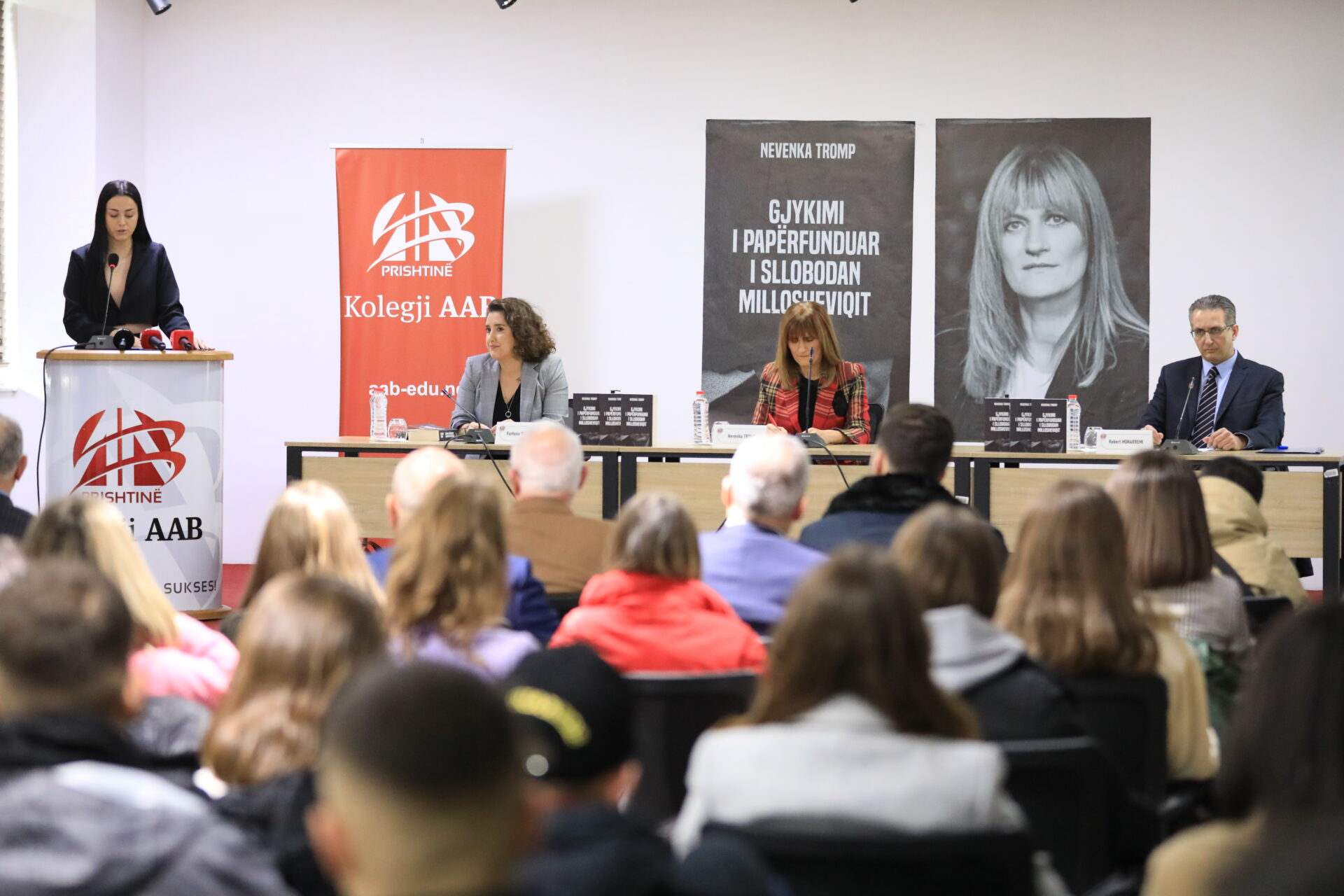

Following the activities at the premises of AAB College, the book “The unfinished trial of Slobodan Milosevic” by Dr. Nevenka Tromp was promoted, whose translation into Albanian was made possible by the professor of AAB College, Kastriot Myftiu. Also present at the book promotion ceremony was AAB College Rector Bujar Demjaha, who said that a book like this takes us back to the time of Serbian dictator Slobodan Milosevic.
“I think this book is fantastic baggage for those who want to delve into political developments and learn about the crimes of the past so we are not doomed to repeat them”, said Demjaha.
The author of this book, Nevenka Tromp, has talked about her efforts and the challenges she has gone through until she finished the book. “This book is a work of about six years. I would wake up and go to the office to look for and review all the material from Milosevic’s trial. In the beginning, I had no idea what I was doing and was not sure about the concept or the time period I wanted to include in the book. I was told that Slobodan Milosevic was dead, however to me, this was no reason to stop but, rather continue to understand the truth. “This book is your story,” she said.
Guests Furtuna Sheremeti and Robert Muharremi spoke about the importance and connection of the country’s policies with the book.
“If not challenged from alternative perspectives, Serbia’s control over the post-conflict narrative could leave Serbia with a cleaner history than it deserves, allowing post-conflict elites to pursue the ideology of uniting all Serbs. Dr. Tromp has managed to expose the political dimensions of international criminal justice as reflected in Croatia, Bosnia, and Kosovo. The train has not stopped yet,” said Mr. Muharram.
Whereas, Furtuna Sheremeti spoke more about the consequences of the past, saying that the past still haunts her.
“It is an expression in the Albanian language that I keep in my heart: “Never Forget”. This approach is one of the reasons why people in Kosovo still remember and cling to the past, but it also risks becoming exactly the reason why people leave the country because a worse fate could eventually befall them–thus making them forget the real reason the war was fought in the first place. And this is a scenario that no country should allow to happen,” she said.
At the end of the promotion, Tromp answered questions from students and other participants.
